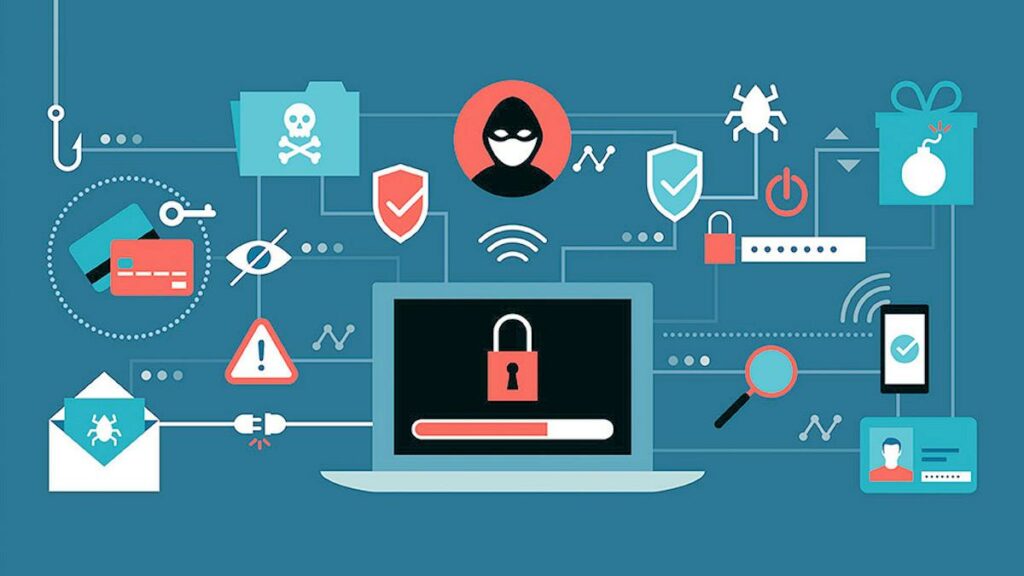
Personal data safety
Personal data safety can be kill joy when we want to quickly post our favourite stuff online. You can reveal too much online without realising it. Posting photos, videos and status updates are pretty much part of life. There are few things you should be wary of to avoid costly losses, frustration or embarrassment.
Holiday Plans
Do you see this type of status update:
“Only 2 more sleeps until we fly to Thailand for 2 weeks ?”
Informs everyone; “We are going away in 2 days and the house will be empty for 2 weeks.” Not a message you would want going public. If you don’t check your privacy settings, information will be available for everyone to see. Exotic location shots and selfie updates telling everyone you’re far from home and won’t be returning anytime soon. It would be wiser to share all the details of the holiday when you get back. If you must share, meesage this privately and make sure your privacy settings on your posts are correctly setup.
Event Tickets Personal Data Safety
Getting your hands on the best concert, festival or sport tickets will give you bragging rights. You may be giving up your seat before you get there. Most tickets now display a bar or QR code allowing quick entry into the venue. Make this available, and you turn your ticket into a competition of who can arrive the earliest to get in for free. If boasting about the gig of a lifetime is too much to resist, blur or crop the important codes before uploading.
Forms of I.D.
Posting a picture of your new driving licence or passport can be a rite of passage celebration to share. This may get you some likes you will appreciate but some you won’t from scammers. There are a lot of unique details that is often used to gain access to money and contracts in your name. I wouldn’t recommend uploading these documents at all but obscure any personal information if you absolutely must share the good or bad news.
Credit Cards
You would think this one was obvious, but people continue to share pictures of their credit cards. Too excited and keen to share with the world, their new card has arrived before considering the consequences. The security number on the back is not always required to get hold of your money and identity. Also, you may not be aware you have revealed your card if it’s out on a table in the background.
Home Address
Revealing your home address on social media can leave you open to scammers, stalkers, burglars, trolls and other troublemakers. Again, you may not be aware you have shared details of your address. If the number of your house is visible in a picture and photo geo-tagging is enabled on your phone, it’s quite easy to reveal where you live on Google Street View. To check if geo-tagging is enabled, go to the settings of your photo app and switch off options to store location. On iPhone or iPad, go to Settings, Privacy, Location Services, Camera and select Never.
Phone Number Personal Data Safety
With annoying automated messages from telemarketing companies, it’s best to keep you number off the internet. Sounds easy to do but with different settings on social media or friends sharing their contacts, you can be found through your number. To check Facebook, go to your profile, ‘About’ and ‘Contact and basic info’ On mobile phones section, check who can see your phone number, edit or remove it altogether. Also, check settings, Privacy and change the setting ‘Who can look you up using the phone number you provided’ from Everyone to your best option.
Date of Birth
Who doesn’t like to receive birthday wishes, especially from long lost or loved ones on the other side of the world? You don’t have to advertise your specifics all year round and this detail can be used for identity theft. People can use just your name and birth date to gain access to further private information. Check the visibility on your Facebook profile, ‘About’ and ‘Contact and basic info’ and change the privacy settings on Year and Date. You should change the Year to ‘Only me’ as a minimum.
Unauthorised Videos
Uploading videos of people without consent is not illegal, unless the content is obscene or intended to cause distress. Ethically, sharing personal videos without asking permission is questionable, especially if easily identified or causes embarrassment. There is an editing tool on YouTube which offers the ability to blur out faces for videos. If in any doubt, obtain permission before uploading and especially if they are under 18.
Fingerprints (Bio-metric)
Posting selfies with peace signs or showing your palms doesn’t seem risky but with fingerprint recognition on phones, it is potentially unsafe. Criminals can harvest fingerprints from images if conditions of the image are optimal for this. The process to get a valid fingerprint working on a phone is quite intense but possible. Police were able to identify a person showing a close-up of a person holding ecstasy tablets in his palm.

If you would like to know more or want a personal data safety check, please contact us or make an appointment.

